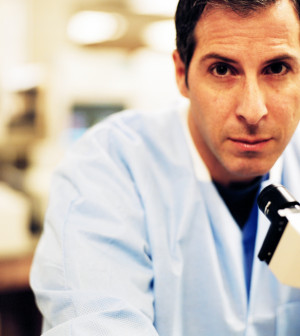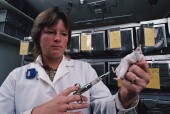- Could Your Grocery Store Meat Be Causing Recurring UTIs?
- Are You Making This Expensive Thermostat Error This Winter?
- Recognizing the Signs of Hypothyroidism
- 10 Strategies to Overcome Insomnia
- Could Artificial Sweeteners Be Aging the Brain Faster?
- Techniques for Soothing Your Nervous System
- Does the Water in Your House Smell Funny? Here’s Why
- Can a Daily Dose of Apple Cider Vinegar Actually Aid Weight Loss?
- 6 Health Beverages That Can Actually Spike Your Blood Sugar
- Treatment Options for Social Anxiety Disorder
Scientists Reverse Type 1 Diabetes in Mice


Scientists who reversed type 1 diabetes in mice say their results might lead one day to new ways to help people with the blood sugar disease.
Type 1 diabetes accounts for about 5 percent of all diabetes cases and is typically diagnosed in children and young adults. There is no cure for the disease, but it can be controlled by taking insulin.
In type 1 diabetes, immune system T-cells attack insulin-producing beta cells. In this study, University of Cincinnati researchers found that using an antibody called UT18 to stimulate a molecule called TLR4 prevented T-cells from attacking beta cells.
This approach reversed type 1 diabetes in a large percentage of non-obese mice that had just developed the disease, according to the study, which was to be presented Saturday at an American Diabetes Association meeting in San Francisco. Research presented at meetings has not been subjected to the peer-review process that most medical journals use, so it should be viewed as preliminary.
The key to reversing type 1 diabetes in mice is to catch the disease when it first develops, study leader Dr. William Ridgway said. He noted that the window of opportunity for treatment would be longer in humans, but would still be relatively brief. However, animal research findings often do not pan out in human trials.
This approach is different from most attempts to combat type 1 diabetes in that it does not directly target T-cells, according to Ridgway.
He said the therapy holds promise because one drug has already been approved by the U.S. Food and Drug Administration and others are under development.
More information
The U.S. National Library of Medicine has more about type 1 diabetes.
Source: HealthDay
Copyright © 2026 HealthDay. All rights reserved.










